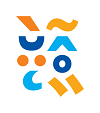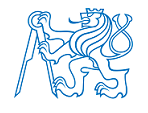History of Language Teaching
The Department of Languages originally belonged to the CTU Rector´s Office and resided in Celetná street. It was led by Professor Leontij Kopeckyi who belonged to a circle of well-known experts in Russian linguistics. Under his supervision, a Czech-Russian dictionary and a Russian-Czech dictionary was issued. After his retirement, assistant professor Vojtěch Bosák took over the leadership of the department. The secretary of the Department was Vera Radovanovičová. In those days, Russian was a compulsory language and was taught for four semesters. The department also comprised of a Slavonic languages section, which was headed by Dr.Karel Haltmar until his death. His secretary was Marie Hajnová.
In 1956 the Department of Languages split into the language departments at individual faculties. This was in order to simplify the workflow management, as the teachers were not able to cope with increasing specialization in terminology required by individual faculties. In addition, teachers´ having to commute from one faculty building to another was not time and cost effective.
It was then that assistant professor Ivan Panas was appointed head of a newly established department at the Faculty of Electrical Engineering. He was also responsible for the Cabinet of Languages at the Faculty of Economics & Engineering led by Ing. Alexei Fedorov. After Professor Panas left the department, it was temporarily headed by Professor Slavík, (the Head of the Department of Physics), with Ms. Dagmar Stuchlíková being appointeded as his deputy. Eventually, Ms. Vlasta Skalická became the Head of Department. After her death, Dr. Milada Tlalková was appointed to this position.
With the establishment of the Faculty of Radio Engineering at Poděbrady, a detached Department of Languages was founded and led by Mr. Igor Mališevský and later, by Ms. Květoslava Přibylová. During the 1983-1984 academic year, Prague and Poděbrady Departments of Foreign Languages merged.
Later, even the Rector's Central Department of Languages started to offer one of the non-Slavic languages, such as English, German, French, Spanish and Italian, in addition to Russian. A non-Slavic language was offered as a second obligatory language. Instruction encompassed all types of study, i.e. full-time, distance learning and evening courses.
The department has always provided foreign students with in Czech language. It has also been involved in preparing postgraduate students for their future careers in the sciences. They were offered specialized language courses, special types of examinations, as well as the proof-reading of their dissertation theses. Examinations in two languages were obligatory and were held before the Examination Board.
Within the Students´ Scientific & Professional Competition, the Department of Languages organized a language competition in professional oral presentations. The competition assessed both language level and overall presentation performance and skill. Students of our faculty have regularly earned high places in foreign language presentations in state-level competitions.
Over recent years, due to increased interest in foreign languages, the department has increased its specialized language preparatory courses for the State General Language Examinations in English, Russian and German. This examination was held in the Department of Languages and successful graduates acquired a special test certificate.
Following the Velvet Revolution in 1989, the attitude to the importance of individual languages changed, and English and German began to be preferred to Russian. Two compulsory languages still remained , one on a lower and one on a higher level. At both beginner and intermediate levels, the courses were scheduled for two hours twice a week, and advanced level courses were two hours weekly. Both languages had to be completed with an obligatory examination.
Based on frequent complaints of students having difficulties studying two foreign languages, the language instruction was massively reduced. First, the contact hours in lower levels were reduced from four to three hours a week, which was very difficult to schedule.
After a structured study being introduced in 2003, further reduction in language teaching continued. First, a compulsory examination in the second language (not English) was abolished, which was followed by the level of the second language being lowered from intermediate to beginner.
In the academic year 2005/06, the bachelor degree fields of study were modified and their accreditation brought about further curtailment in language teaching. Since that time, students have been required to take a higher level examination in English only; which had to be completed by the end of the bachelor study stage. Other languages became optional. As a result of student requests, Japanese and Chinese were opened, thereby enriching the offer of “other” languages.
Currently, the department is making an effort to customize its course offerings to the current needs of students. Among others, it organizes training courses for international examinations ( e.g., FCE, CAE, TOEFL…)and special courses preparing students for their exchange studies at foreign universities.
It is assumed that the interest, particularly, in specialized "soft skills" courses or less traditional languages will rise in the near future.
Last update : 6.3.2024, webmaster: 13104@fel.cvut.cz


